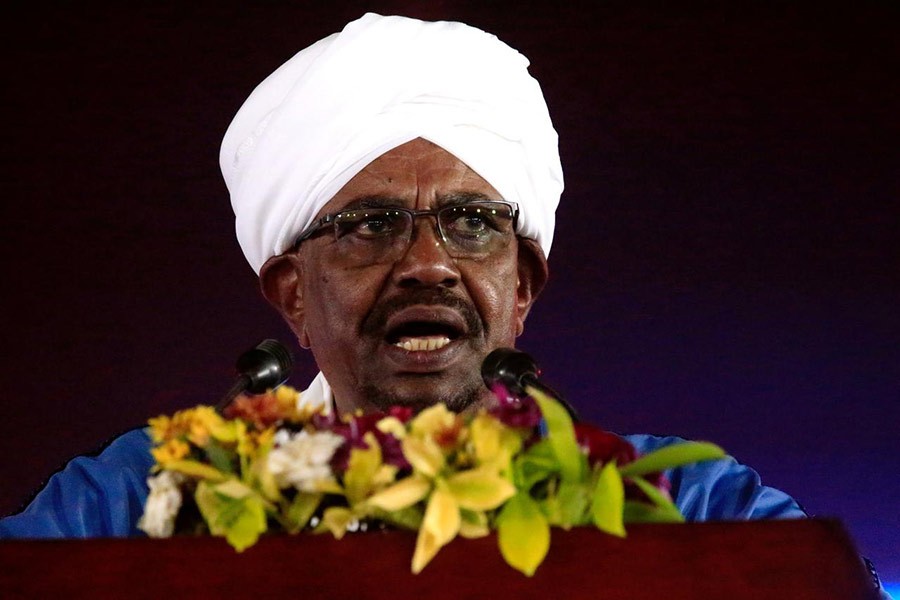Sudanese President Omar al-Bashir does little to hide his contempt for the young men and women who have been protesting for more than a month to demand an end to his three-decade rule.
Addressing soldiers this month, Bashir, a 75-year-old former paratrooper who seized power in a bloodless coup in 1989, warned the “rats to go back to their holes” and said he would only move aside for another army officer, or at the ballot box, reports Reuters.
“They said they want the army to take power. That’s no problem. If someone comes in wearing khaki, we have no objection,” Bashir, wearing his military uniform, told soldiers at a base in Atbara, the northern Sudanese city where the protests started.
“When the army moves, it doesn’t move in a vacuum. It doesn’t move in support of traitors. It moves in support of the homeland,” he added in colloquial Arabic.
Bashir has long been a divisive figure.
Since taking office in what was then Africa’s largest country, he fought a protracted civil war with southern rebels which ultimately ended with the secession of South Sudan in 2011, and the loss of more than 70 per cent of Sudan’s oil.
Sudan has suffered prolonged periods of isolation since 1993, when the United States added Bashir’s government to its list of terrorism sponsors for harbouring Islamist militants. Washington followed up with sanctions four years later.
Bashir has also been indicted by the International Criminal Court (ICC) in The Hague over allegations of genocide in Sudan’s Darfur region during an insurgency that began in 2003.
Now, he is facing almost daily defiance at home in towns and cities across the country, protests that are still spreading despite mass arrests and a harsh crackdown by security forces using tear gas and live ammunition.
Authorities say at least 30 people have died in the unrest, which started on Dec. 19 after the government tried to raise bread prices, while rights groups and local opposition figures say at least 45 have been killed. Hundreds have been injured and hundreds more detained.
“The current protests represent the biggest and deepest challenge to Bashir’s rule because they indicate that the crisis has reached a new level,” analyst Khalid al-Tijani said.
ECONOMIC MELTDOWN
Bashir’s critics blame him for Sudan’s marginalisation and an economic meltdown that saw inflation soar to 72 per cent by the end of 2018 and left the country unable to pay for food imports.
Supporters blame a Western conspiracy designed to undermine Islamist rule in Sudan, just as Bashir rejected the ICC charges over Darfur as part of a neo-colonialist plot.
In the months before the protests began, Sudanese had already been struggling to makes ends meet. The government tried to introduce reforms, devaluing the Sudanese pound and relaxing import restrictions, all to little effect.
The government had hoped for quick financial support from wealthy Gulf Arab allies after Bashir sent troops to Yemen as part of a Saudi-led alliance fighting rebels aligned with Iran, but help was slow to arrive.
The trigger for the wave of protests was a government attempt to introduce unsubsidised bread, allowing bakeries to sell at a higher price. That came on top of the crippling, drawn-out crisis that had led to fuel and banknote shortages.
The demonstrations quickly turned political, targeting ruling party offices and demanding Bashir step down.
Unlike previous bouts of unrest, the protests have spread to parts of the country normally loyal to Bashir - and the heavy-handed response has so far failed to stem the spread.
Security forces have mostly used tear gas and stun grenades to try to quash the protests, but demonstrators and local rights groups have also documented the use of live ammunition.
Protesters often repeat one chant: “Down, that’s it.” Others shout, “Down, down with Keezan,” a derogatory name used to describe Islamists.


